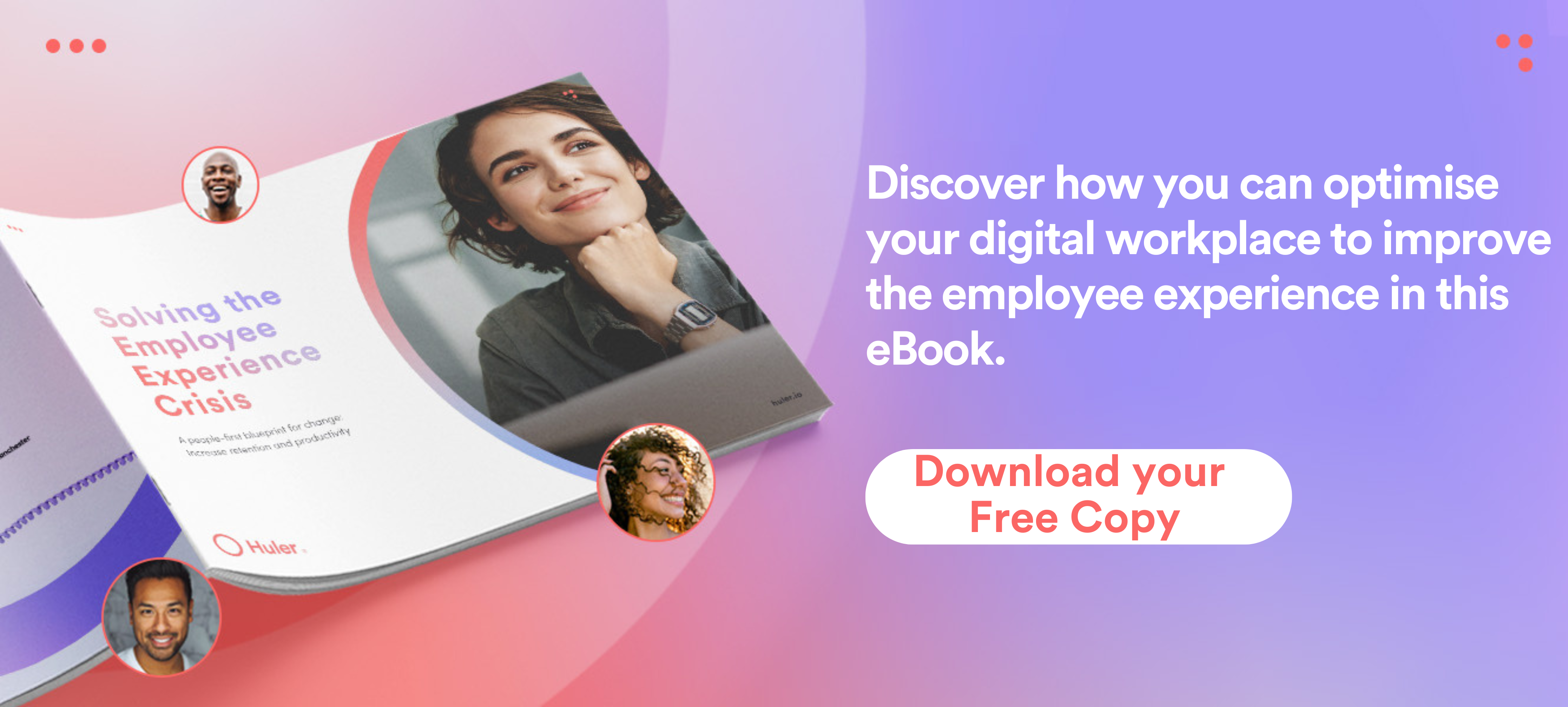Yet another year has flown by. And in those 365 days a lot has happened. Especially in the world of work. While in 2020, remote working was the keyword of the hour, this year has looked a little different. Flexible working, the Great Resignation, workplace wellbeing, and diversity and inclusion have been strong talking points over the last 12 months.
But what of the future? As 2021 draws to a close and we see the new year looming on the horizon, our minds naturally turn to what the future holds. What challenges will we have to overcome this year? What success will we enjoy? What trends will catch our collective attention and stick? What will be left behind?
4 Emerging Workplace Trends For 2022
Now, we don’t have a crystal ball. But we do have our ears to the ground when it comes to work trends and what employees (and employers) want. So, without further ado, here are our predictions of the key trends that will reshape the future of work, or rather the now of work, in the new year.
The Death Of The 9-5
There’s no doubt that WFH during the pandemic opened the eyes of many to a new way of working. But this potential could not be fully realised amidst lockdowns, where life was far from normal.
As restrictions started to ease, many businesses including big tech companies like Google, Hubspot and Salesforce, adopted hybrid working policies, offering staff more flexibility over where they worked. This was fuelled in no small part by uncertainties and anxieties relating to Covid, but the notion quickly caught on. By early 2021, one in five British workers wanted to be able to work from home some or all of the time after the pandemic.
But this trend is set to go a step further in 2022 by disrupting the traditional 9-5. In a 2021 blog post, president and chief people officer at Salesforce wrote:
“An immersive workspace is no longer limited to a desk…the 9-5 workday is dead.”
And we are inclined to agree. The idea that we can only be productive in a very specific 8-hour window is over 100 years old. But times have changed. Our lives look very different to the lives of people back in the 1900s, including the kind of work we do, technology we use, our family life and our personal values.
Our prediction:
In 2022 flexible and asynchronous working will replace the 9-5.
Instead of being chained to their workspaces for an arbitrary amount of time, employees will have the flexibility and empowerment to work in ways that work for them and will be trusted by their managers to do so. This shift will be supported by technology that enables asynchronous work and collaboration, while office spaces will become more geared to working together rather than in cubicles.
Manager-less Teams
This one is a controversial one, which is why we love it so much! In recent years, many organisations have shifted from hierarchical structures, with lots of management layers, to flat structures with fewer levels of management.
The advantages of flat organisational structures are that employees are empowered with a deeper level of responsibility and accountability while organisation as a whole benefit from faster communication and decision making.
The notion of manager-less teams isn’t completely new. In his book, The Future of Work, Jacob Morgan (one of the world’s leading authorities on leadership, the future of work and employee experience) references manager-less organisations where teams make collective decisions instead of one person taking control.
2022 will be the year this notion comes to life a bit more. With the gig economy on the rise, it’s not a stretch to perhaps declare that traditional full-time jobs are in decline. Now, more than ever, a large portion of the workforce want to be specialists in their field, which pretty much negates the need for a direct manager in the traditional sense.
Our prediction:
In 2022, managers will take a step back and employees will step forward, owning their roles even more, particularly as they work on more flexible and asynchronous schedules.
We’re not sure many organisations will take the leap to be completely manager-less just yet, but the role of managers will evolve to more of a mentorship than a dictatorship, supporting workers to make decisions instead of driving them behind the scenes.
More Focus On Employee Experience
The Great Resignation of 2021 has most definitely been a double-edged sword. And some might argue we’ve yet to feel the full force of it.
There are two big reasons why many employees are actively choosing to find a new employer right now:
1. Post-pandemic burnout
2. Lots of job vacancies available
This perfect storm of circumstance is seeing people taking control of their careers, giving up their current jobs to find roles that work for them. While that’s scary for some, it’s also exciting and opens up a world of possibilities for everyone.
And that’s where employee experience comes in.
What started as a focus on employee engagement has evolved recently. Now, it’s not just about employees doing the work, it’s how they feel about your company, their work, and their contribution while they do it.
Our prediction:
In 2022, more organisations will prioritise the employee experience from recruitment right down to off-boarding.
Technology that is easy to use and personalised, such as employee experience platforms, will be used to influence key touchpoints in the employee journey and ensure workers have all the information, tools and knowledge they need right at their fingertips.

The Rise Of The Emotional Workplace
Mental health and wellbeing have been key talking points this year, particularly at work. As the pandemic raged on from 2020 into 2021, we all had to deal with a wide range of emotions from loneliness and overwhelm to stress and anxiety. It’s no surprise then that many predictions say the next global pandemic will be mental health related!
On top of that, we now have two generations in the workplace who are more focused on their wellbeing – millennials and Gen Z. These individuals have a set of core values and beliefs that are very different to generations that have come before them.
Take gymnast Simone Biles as an example. In the 2020 Olympics she pulled out of both the team and women’s individual all-around final citing her mental health as the reason. The writing is on the wall: rising through the ranks are two generations who are more passionate about preserving their mental health than ever.
Our prediction:
In 2022, organisations will prioritise their mental health at work strategies.
Employees will be encouraged to take their full annual leave allowance and fully switch off during that period, benefits will include more mental health support in the form of resources, counselling and therapy services, and taking mental health days will become the norm.
More than anything, we hope in 2022 that businesses will be able to have more open and honest conversations around mental health and do more to support those who feel they can’t bring their best selves to work due to related issues.

Getting Ahead
Evolutions in technology such as VR, automation, AR and machine learning will also radically shake up how we work, but for this year we thought it more fitting to focus on the human aspect of the future of work. After all, in 2021 lots of organisations felt the pain of what might happen when their businesses don’t work for their people. But that’s another blog in itself.
If you’re looking to get ahead in the new year by providing better employee experiences, check out HulerHub – the world’s best looking and most personalised employee experience platform. Here at Huler, we’re on a mission to make work human again, and HulerHub helps to bridge the gap between the plethora of technology your people are using and the consumer-grade experience they crave from their digital work experiences.
To learn more about HulerHub, book a demo and see it in action. Alternatively, contact us for more information.





